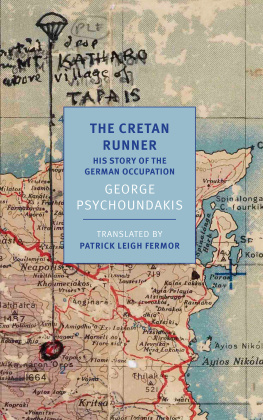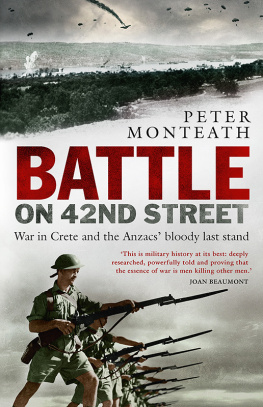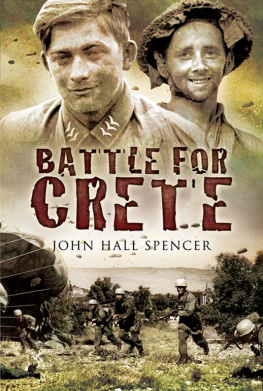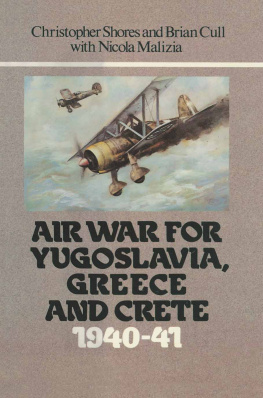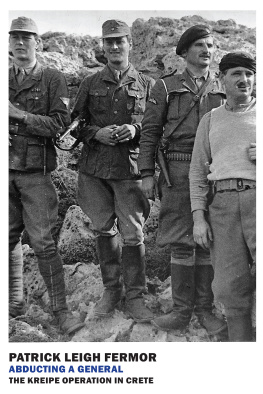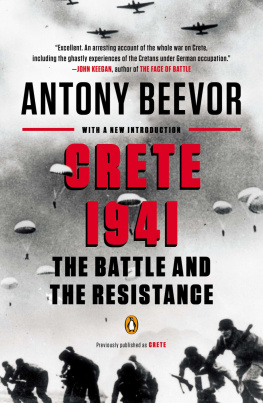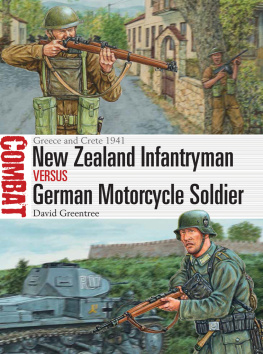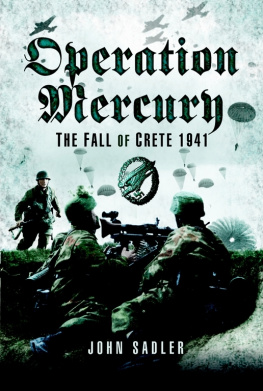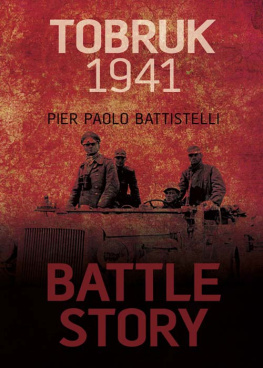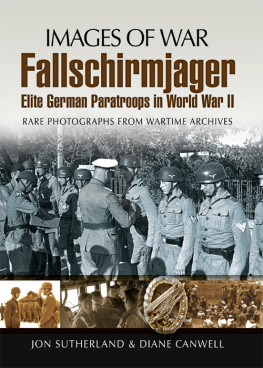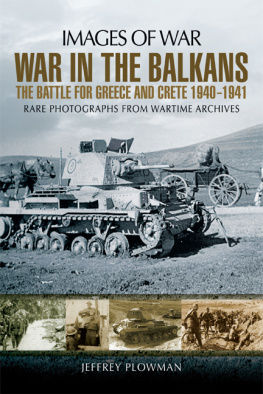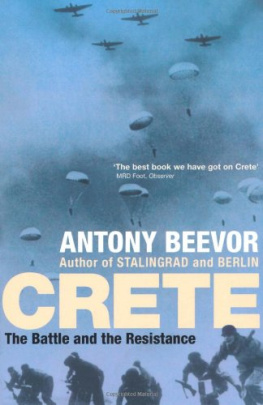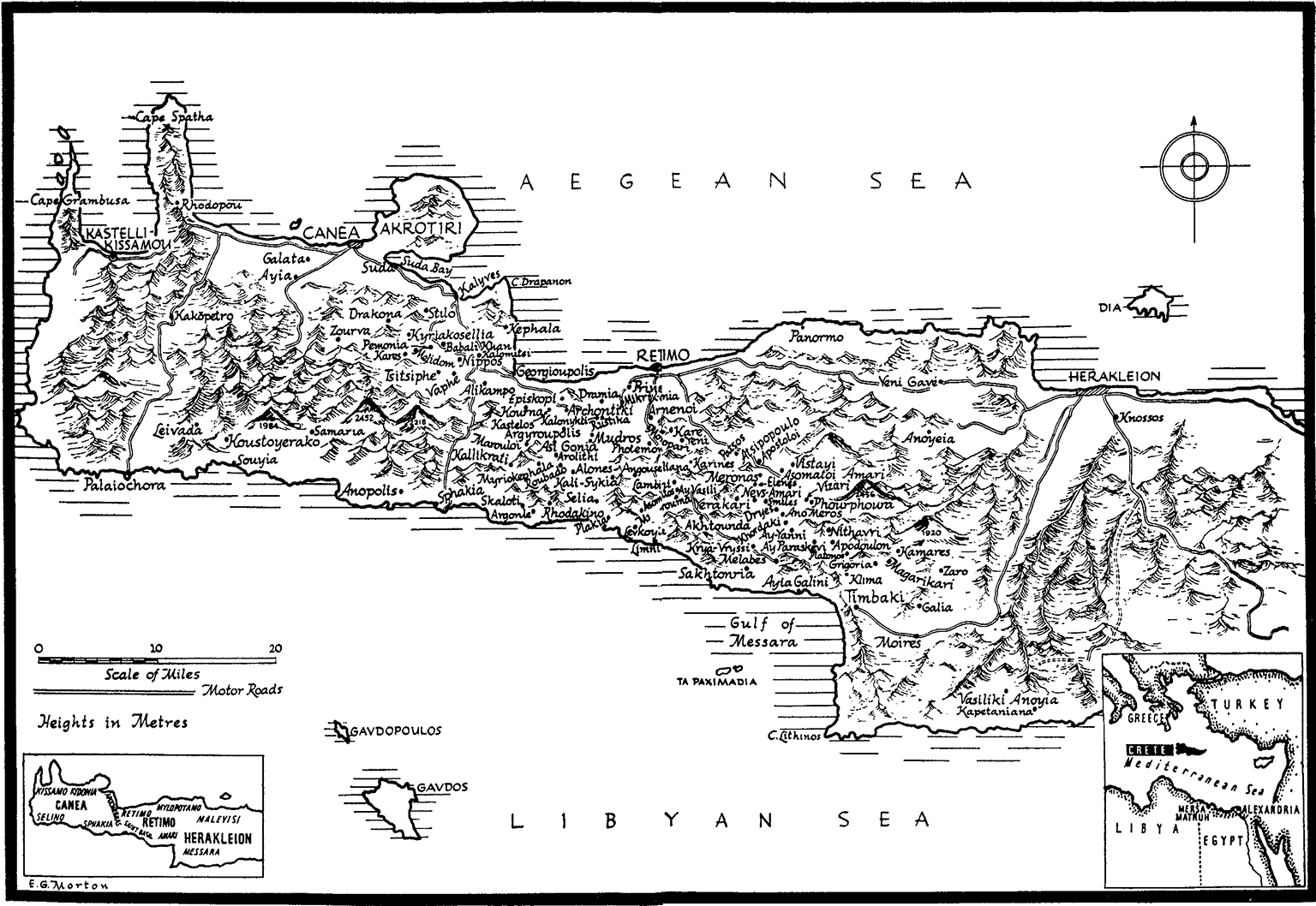GEORGE PSYCHOUNDAKIS (1920-2006) was born and raised in the remote Cretan village of Asi Gonia, where he received a rudimentary education. When the German army invaded in 1941, he left his work as a shepherd and joined the Resistance. He would eventually run messages for the British Special Operations Executive, and was noted for his speed and intimacy with the landscape. After the war he was mistakenly imprisoned as a deserter and began writing what would become The Cretan Runner (published in English in 1955 and in Greek in 1986) while in prison. In addition to his memoir, Psychoundakis wrote The Eagles Nest, a study of the customs of Cretan mountain dwellers, and translated works by Hesiod and Homer into the Cretan language. In 1945 Psychoundakis received the Medal of the Order of the British Empire for Meritorious Service, and in 1981 he was recognized by the Academy of Athens for his translations. He lived on Crete, with his wife and three children, until the end of his life.
PATRICK LEIGH FERMOR (1915-2011) chronicled his youthful walk across Europe to Constantinople in a trilogy comprising A Time of Gifts, Between the Woods and the Water, and The Broken Road. After serving on Crete during World War II, Leigh Fermor settled in Greece and his books Mani and Roumeli attest to his deep love for the country. In 2004 he was knighted for his services to literature and to British- Greek relations.
THE CRETAN RUNNER
His Story of the German Occupation
GEORGE PSYCHOUNDAKIS
Translated from the Greek and with an introduction by
PATRICK LEIGH FERMOR
Annotated by the translator and
XAN FIELDING
NEW YORK REVIEW BOOKS

New York
THIS IS A NEW YORK REVIEW BOOK
PUBLISHED BY THE NEW YORK REVIEW OF BOOKS
435 Hudson Street, New York, NY 10014
www.nyrb.com
Text copyright 1998 by George Psychoundakis
All rights reserved.
First published in Great Britain by John Murray in 1955; first published by Penguin books in 1998. Published by arrangement with Penguin Books Ltd., London.
Cover image: War Office map of west and central Crete, created in 1943 and reproduced in 1944, annotated by Patrick Leigh Fermor; Sir Patrick Leigh Fermor archive, by permission of the National Library of Scotland
Cover design: Katy Homans
Library of Congress Cataloging-in-Publication Data
Psychoundakis, George, 1920
The Cretan runner / George Psychoundakis; translated by Patrick Leigh Fermor; introduction by Patrick Leigh Fermor.
1 online resource. (New York Review Books Classics)
ISBN 978-1-59017-905-5 (ebook) ISBN 978-1-59017-904-8 (paperback)
1. WorldWar,1939-1945GreeceCrete. I.Title.
D766.7.C7
940.53'4959092dc23
[B]
2015014789
ISBN 978-1-59017-905-5
vl.0
For a complete list of books in the NYRB Classics series, please visit www.nyrb.com or write to:
Catalog Requests, NYRB, 435 Hudson Street, New York, NY 10014
CONTENTS
List of Illustrations
by Joan Eyres Monsell* and from contemporary photographs
Cover-names of non-Cretans
in order of their appearance
YANNI
Captain (later Major) Jack Smith-Hughes, OBE
MICHALAKI, later SIPHI
Sergeant (later Captain) Ralph Stockbridge, MC and bar
ALEKO
Captain (later Major) Xan Fielding, D S O
MONTY
Captain (later Colonel) the Hon. C. M. Woodhouse, DSO, OBE
YANNI or O TOM
Captain (later Lieutenant-Colonel) Tom Dunbabin, DSO
MICHALI or PHILEDEM
Captain (later Major) Patrick Leigh Fermor, DSO, OBE
SIPHI
Flight-Sergeant Jo Bradley, DFM, MM
LEVTHERI
Captain (later Major) Arthur Reade
LITTLE ALEKO or KALAIDZS (THE TINKER)
Corporal (later Sergeant-Major) Alec Tarves, MM
MATTHAIOS
Corporal (later Captain) Matthew White
LEVTHERI
Lieutenant (later Captain) Hugh Fraser
YANNI
Lieutenant (later Captain) John Stanley
ALEXIS
Captain (later Major) Sandy Rendel
VASILI or KIWI
Sergeant-Major D. C. Perkins, NZ Forces
PAVLO
Captain (later Major) Dick Barnes
CHARIS
Sergeant (later Sergeant-Major) Harry Brooke, DCM
DIONYSIOS
Captain (later Major) Denis Ciclitira
MITSOS
Major Bruce Mitford
THEOPHILOS
Major-General Heinrich Kreipe (Knights Cross of the Iron Cross)
STEPHANOS
Lieutenant (later Captain) Stephen Verney, MBE
MANOLI
Lieutenant Geoffrey Barkham
Dedication
To the Greeks and their brave allies and brothers-in-arms who fell fighting in the Cretan Mountains in 1941, and to Cretan and British friends who worked for freedom during the dark years that followed.
..
Introduction
by Patrick Leigh Fermor
Back in Crete three years ago I soon found my way to Asi Gonia, travelling by bus from Canea to the little town of Episkopi on the main Retimo-Herakleion road, and then inland to Argyroupolis, where mules were waiting: strong mountain animals with cumbrous wooden saddles commodiously padded with scarlet blankets.
We followed the river bed for an hour or so, picking our way among the boulders under the plane trees, the gorge leading us ever deeper into the complex of mountains. We climbed at last to the village of Asi Gonia, where the mountains rise on three sides in forbidding crags, the southernmost joining the ragged cordilleras of Sphakia. These are dead, barren ranges, gashed with landslides, with a solitary shepherds hut here and there and a scattered herd of goats only to be discerned by locating the far-away clink of their bells. Even on this second return to the island since the war, it seemed incredible to be moving about these regions freely.
The first of our old Asi Gonia friends to greet this little cavalcade was George Psychoundakis. He came leaping down the cobbled lane as nimbly as ever, flourishing his tortuous olive-wood stick with pantomime gestures of welcome and jubilation.
He had changed a little since I had last seen him a year after the war. His face had filled out and he had grown a sweeping black moustache that seemed a slightly burlesque addition to his delicate and rather intellectual features. When he took off his army beret I was astonished to see that most of his hair had gone; his forehead now recedes smoothly three-quarters of the distance over his scalp, giving him, at a first glance, a deceptive air of middle age which a second glance quickly belies. It had all fallen out a few years before, during the space of three days. He has an alert, extremely personal sense of humour (which has served him well, as he has been the magnet for an undeserved sequence of troubles) and there must have been something odd about him from the start for Xan Fielding and me to have invented the code name of the Changeling for him (which later became, for some reason, the Changebug).His gift for play on words, for funny repartee, light verse, improvisation, unpredictable flights of imagination and his instinct for teasing the great, just on the right side of impertinence, earned him a universal licence as jester: but his charm and good manners coupled with his diminutive size and a strange lost look he was always tired out from his innumerable lonely treks made him a favourite among the mothers and daughters of a hundred mountain villages as well as among the rest of us.

